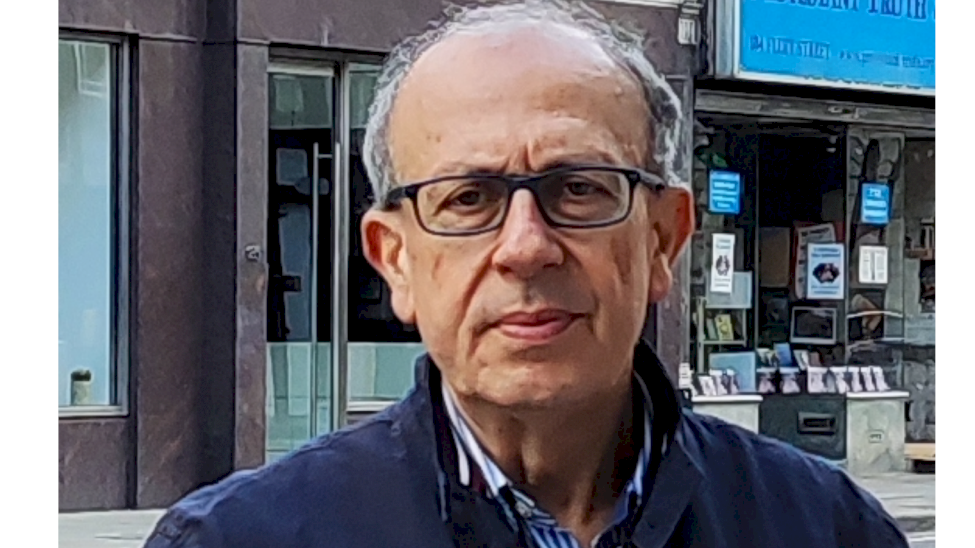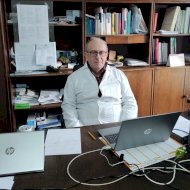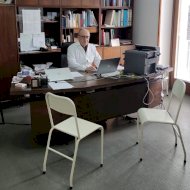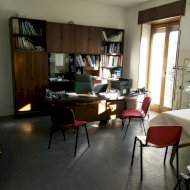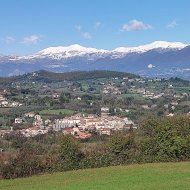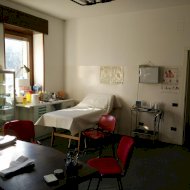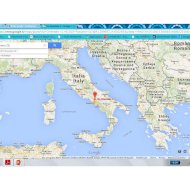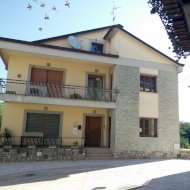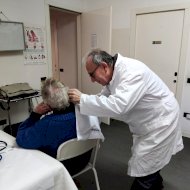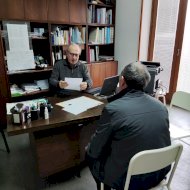Ferdinando Petrazzuoli MD, PhD, ORCID (0000-0003-1058-492X) has been an active family doctor in his native, rural, village in Southern Italy for nearly 40 years. He is a postdoctoral researcher at the Center for Primary Health Care Research, Department of Clinical Sciences in Malmo, Lund University, Sweden as he obtained his Phhttps://getbootstrap.com/docs/4.6/getting-started/introduction/D at the same department in June 2019. He has also a Master of Science (MSc) in Primary Care & General Practice from the University of Ulster (United Kingdom) (June 2008).
Since 2022 he has been a Contract docent at the School of Specialization in Community Medicine and Primary Care, University of Naples "Federico II", Italy.
In 2015 he was nominated to the EURIPA Executive Board and became Chair of the EURIPA Scientific Board. In June 2022 he was nominated member at large representing EURIPA in the WONCA Europe Executive Board.
Over the last 8 years he has always been involved as chair or co-chair of the Scientific Committee of the annual EURIPA Forums. He has also been involved in oral presentations and workshops both at the EURIPA Forums and at the WONCA Europe conferences and last year at the Annual conference of the WONCA working party on Rural Health in Limerick.
He has been involved as leading author in many of the surveys launched by EURIPA and also leading EURIPA author in some articles published in international indexed journals.
--------------------------------------------------
You have been recently elected EURIPA president elect for the term. Congratulations.
-
How would you introduce EURIPA to our readers?
EURIPA stands for the European Rural and Isolated Practitioners Association. EURIPA is a representative network organisation founded by family doctors to address the health and wellbeing needs of rural communities and the professional needs of those serving them across Europe. It represents a growing network of rural practitioners and organisations across Europe working together to disseminate good practice, initiate research and influence policy. EURIPA is one of the networks of WONCA Europe.
-
What are your aims for the next years?
My plan as EURIPA president is to reinforce the research capacity of EURIPA because the lack of research in rural primary care contributes to its invisibility and to the widespread undervaluation of its peculiarities and its problems. I also hope to strengthen EURIPA collaboration with other state and non-state actors such as WHO, EU, OECD, and WONCA EUROPE and WONCA WORLD networks. My personal vision is of a future rural GP who is proud to be rural.
-
There has been a secular controversy about the definition of rural medicine. How would you define rural medicine ?
This controversy still exists. According the EURIPA booklet, Blueprint for Rural Practice in Europe, (https://www.euripa.org/resources/view/blueprint-for-rural-practice-in-europe),
“No universal definition of rurality exists across Europe and most countries have their own. ‘Rural’ can be defined in a number of ways, including settlement size, sparsity of population, access to services, distance from major centres and land usage…. Rural varies from country to country and from place to place, hence defining rural may be more difficult than merely collecting statistics. This can be due to geography, demography, occupations, land usage, resources, economy, infrastructure, culture and potentially other issues. Although a universal definition is desirable in the future, national definitions and local perceptions will have to suffice for now.
-
You were one of the speakers in the last WE Open Meeting during last WE conference 2023 that was titled: High touch versus high tech: the crucial role of face-to-face general practice in the digital age. You intervention was titled digital health and telemedicine in primary care. Addressing algo inequity in rural health. What would you point out about it:
EURIPA is not against innovation and new technology. Telemedicine and digital medicine can be a tool to improve patient access to primary care in rural populations with significant health disparities. Telemedicine may facilitate access to care for difficult-to-reach patients, such as those in rural areas, as well as those who have rigid work schedules, live longer distances from the clinic, have more complex health problems, and are from areas of higher poverty or lower education. But patients especially chronic patients and the elderly still prefer face to face consultations with their own GPs and we should bear this in mind.
-
What are the relations of EURIPA with the rest of the WONCA EUROPE networks and Special Interest Groups (SIG)?
As I said EURIPA is one of the networks of WONCA Europe and since 2022 has its own representative in the WONCA Europe Executive Board. EURIPA has always been very active during the WONCA Europe Conferences with participation to workshops, oral presentations and poster presentations. Of course, EURIPA collaborates on specific research projects with all the other networks and Special Interest Groups (SIG) of WONCA Europe
-
What are the relations of EURIPA with the WONCA Working Party on Rural Practice (WWPRP)?
Many members of EURIPA are also members of the WONCA Working Party on Rural Practice (Rural WONCA). Some rural problems are common around the world; but we also recognize that rural Europe is very different from the rural areas of other continents, just think of the age of the population which in Europe is much higher than the urban one.
-
What do you think will be the impact of Artificial Intelligence and Machine learning in the next 10 years?
I think artificial intelligence and machine learning will have a considerable impact in both urban and rural areas in primary care, providing valuable support and advice in both the diagnostic process and the therapeutic approach, but, most importantly, it is up to humans to make the final decisions.
-
How do you think rural medicine will be in twenty years’ time?
Inevitably rural medicine will also be influenced by the advent of new technologies and by the artificial intelligence and machine learning, but we also think that health and care policy development should be reviewed through a ‘rural lens’ or a “Rural Proofing” tool, to ensure that rural people and communities are not adversely affected. EURIPA and other rural organisations have an important advocacy role in this regard.
-
Which book are you reading now, and do you recommend it?
The EURIPA booklet, Blueprint for Rural Practice in Europe, can be easily downloaded from the EURIPA website (https://www.euripa.org/resources/view/blueprint-for-rural-practice-in-europe). I would strongly recommend it.
10. What are the main challenges for rural primary care right now?
The so called “silver tsunami” i.e. the unprecedented increase in the number of older patients often affected by multimorbidity is another serious health and socioeconomic concern for modern societies and the interconnected challenges of excessive workload, premature burnout, and a shortage of primary care personnel especially is rural areas represent a pressing issue for the near future. Addressing the complexity of this issue requires a comprehensive approach due to the scarcity of rural healthcare professionals in European primary care. The health and well-being of both the primary care workforce and the communities they serve are intrinsically intertwined. Enhancing working conditions is a priority: addressing issues like long hours, heavy workloads, bureaucratic demands, and burnout can enhance the appeal of rural primary care practice, attracting and retaining more professionals.
-
A final greeting to our readers.
Either you are simply intrigued by rural primary care and intend to practise in a rural area for only a short period of time or if you have made this lifelong commitment, please join the 13th EURIPA Rural Health Forum which will take place from 20th - 22nd June 2024 at the University of Lincoln, Lincoln, UK. The title is: Tackling Health Inequalities in Rural and Remote Communities

